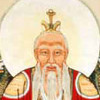“ The mind finds a satisfaction and ease in the view of objects, to which it is accustomed, and naturally prefers them to others, which, though, perhaps, in themselves more valuable, are less known to it. By the same quality of the mind we are seduced into a good opinion of ourselves, and of all objects, that belong to us. They appear in a stronger light; are more agreeable ”
David Hume, A Treatise of Human Nature (1738). copy citation
| Author | David Hume |
|---|---|
| Source | A Treatise of Human Nature |
| Topic | satisfaction quality |
| Date | 1738 |
| Language | English |
| Reference | |
| Note | |
| Weblink | http://www.gutenberg.org/files/4705/4705-h/4705-h.htm |
Context
“yet as we become familiar with the objects, and contact an acquaintance, though merely with the streets and buildings, the aversion diminishes by degrees, and at last changes into the opposite passion. The mind finds a satisfaction and ease in the view of objects, to which it is accustomed, and naturally prefers them to others, which, though, perhaps, in themselves more valuable, are less known to it. By the same quality of the mind we are seduced into a good opinion of ourselves, and of all objects, that belong to us. They appear in a stronger light; are more agreeable; and consequently fitter subjects of pride and vanity, than any other.
It may not be amiss, in treating of the affection we bear our acquaintance and relations, to observe some pretty curious phaenomena, which attend it.”
source



